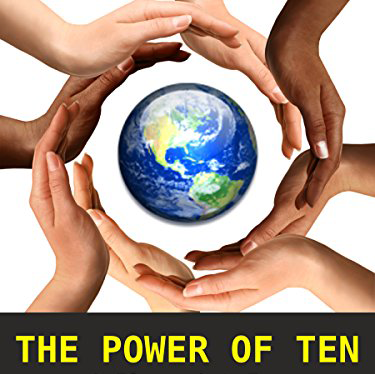Stories
V. The Power of Ten
1. Emancipation needs time.
Saying goodbye to our addiction to the romantic notion of authority and stardom does not mean we should do away with authority or that we should no longer enjoy our heroes and stars. It is just that we should not let those people diminish us. We shouldn’t submit ourselves to a notion of supremacism. Those stars and heroes are people that in the grand scheme of things are equally meaningless as we, the normal people, are.
As a sociologist I am disappointed both in the study and in many of my fellow students. Not on a personal level. They are often nice well-meaning people, but many or most lack a critical attitude towards a social environment as dictated by the established order. They will end up being responsible for continuing and even reinforcing the established order. That is not in the interest of most living creatures on the planet as it cannot be sustainable. Yet, through their studies students become members of the social layer with higher education that common people are told to put their trust in.
Of course, individual students would stand alone if they came up with ideas for structural change. After all the university is part of the established order. They must be challenged by the common people. But even more so, they need the support of the common people. The support of an emancipated common people, sick and tired of paying the price for the non-sustainable society they have helped to be built.
Emancipation of the commoner. Reinforcing the social, that is what sociology in my dreams would be about. Helping people to build confidence by education. Building confidence also by destroying the arrogance of people defending their position in the hierarchy by being debaters, not open for constructive discussion. If a higher educated individual, or any person for that matter, claims to have all the answers, it is impossible to discuss the questions.
The hierarchy at the university was often really stifling. Sociology is in those cases about the method of understanding society. That makes sociologists excellent candidates to work in a polling environment. They are good at segmenting society, but for me sociology should not be a marketing study but a social study. It should not be about a better understanding of a failing system but about building the blocks to construct a better social context. So, sociology may have been the wrong choice, but in studying it I still learned a lot.
The hierarchy lives off the common people. After all, the common people produce and consume. In doing so we shape the economy. For this role we are entitled to a fair reward and due respect, but we will only get that by demanding it, insisting on it. We deserve confidence in the realisation that without the common people the elite is nowhere.
Time is the enemy of the common people. The common people do not have a lot of time to make it clear we need more time to get organised. The top of the hierarchy has lots of time and a clear purpose. The common people have neither. We are herded all the time and need our spare time to recover.
So, the odds are stacked against us, how to achieve the necessary emancipation? By insisting on Social Time. That is where the start must be: Social Time. Not time to go on holiday, but time to contribute to educating our young and ourselves in the process. I would say Wednesday afternoon, to avoid the temptation to let it merge into a long weekend. We are only going to radically adapt education to the needs of a thinking democracy if we get involved ourselves.
Today we have delegated the schooling of the future generations to the government, the people of right and wrong, the hierarchy with their simplistic answers. Those who are best at right and wrong are rewarded with the highest grades. But is the best answer Good Enough? Good Enough for what? For a sustainable world or for an increased market share? Every question must be evaluated from different perspectives to highlight that economic growth is just one perspective and maybe, probably, in the grand scheme of things, the most damaging one.
If we take responsibility for our education there will still be a place for acquiring skills like reading, arithmetic, geography, and history, physical education, drawing and music. Things that can be taught, but educational didactics should concentrate on problem orientation (I avoid the more common problem definition), personal independence and group interaction, attitude development and progress evaluation. It should be geared around thinking assisted by case studies. Problem based learning to appreciate the value of thinking in possibilities rather than knowing the right answers.



